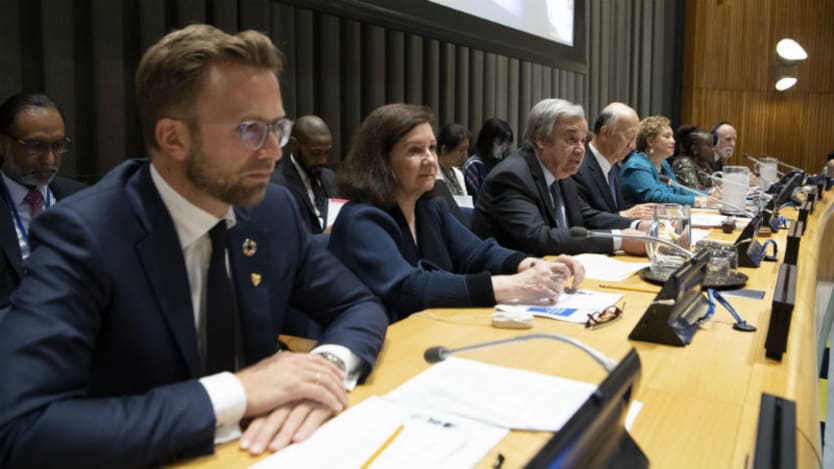
UNITED NATIONS — A multistakeholder approach — and an unknown amount of funding — is needed to help ensure that every adult has affordable access to digital networks by 2030, according to a new U.N. expert panel on digital cooperation.
As the world becomes more digitized, the risks of leaving the most marginalized people offline increases, according to the U.N. secretary-general’s High-level Panel on digital Cooperation, which briefed the U.N. General Assembly on the findings of its first report this week in New York.
“We need to address 50% of the population that is not yet online.”
— Nikolai Astrup, minister of digitalization, Norway“We are in the midst of a digital revolution. Digital tools are fundamentally changing the way we relate to each other and organize our societies. We must ensure that developing countries, too, can benefit from the digital solutions. Otherwise, we will never reach the SDGs by 2030,” Nikolai Astrup, minister of digitalization of Norway, said at a U.N. Headquarters press briefing on Monday afternoon.
“We worry about the challenges and potential pitfalls related to new technology. We need to address 50% of the population that is not yet online,” Astrup continued.
The panel, co-chaired by Jack Ma and Melinda Gates, released its first report, “The Age of Interdependence,” on Monday, nine months after U.N. Secretary-General António Guterres first convened the group of private sector, civil society, and government experts.
Guterres plans to create a roadmap for the role of the U.N. in the digital space, he told the General Assembly on Monday, citing the gaps in digital access as an “urgent, global issue.”
“If we consider the accelerating pace at which these technologies are transforming economies and societies, I believe that the international community, including policymakers, is failing to meet its responsibilities. The systems for governance of digital technology are old, fragmented, and reactive,” Guterres said. “The longer we wait to update these systems, the further we will fall behind.”
While the proportion of people online in the developing world grew from 14.5% in 2008 to 45.3% in 2018, the progress has recently slowed and for many people, internet access remains poor and expensive, the report finds. That’s despite an “active community” of donors and institutions working on universal digital technology, like the Alliance for Affordable Internet, according to the panel.
Living life offline can impact everything from access to digital identification and government services, to e-commerce and mobile money. In even the most connected and developed countries, there are often “significant” pockets of disconnection, explained Vint Cerf, vice president and chief internet evangelist at Google, at the press briefing.
There is also a need for better engagement with people in low- and middle-income countries who can help identify policy gaps.
“We need the rest of the world, especially the developing world, to be part of this conversation, to help us see landscapes we did not get a chance to look at, to understand what the policy landscapes might be in those landscapes,” Cerf said.
Like Guterres, Cerf described an urgency to close the socioeconomic gaps in online access across the world. The panel’s report, he said, needs to be the beginning, not the end, of a dialogue and ongoing investment.
“There is some urgency to this. The rate at which digital technology is flowing into use and the dependence that we are putting on it is significant and growing,” Cerf said. “Now, digital divide is even more important than it was before, when people did not have laptops or desktops. You are connected most of the time and it is dramatically helpful.”
Investing in equal digital access will cost a significant, but unknown amount of money, Cerf and Astrup said. But there is a demand for the private sector to invest in lower-cost mobile phones, for example, simply based on needs.
“There is enormous incentive for companies to engage,” Cerf said.
“I am seeing some interesting mobile phones created for $20 each, which is astonishing. They do not have all the features, but they have enough to be useful, to get access to the internet and the applications it offers. I think we will see investment made out of simple incentive on the business side and demand on the consumer side,” he continued.








